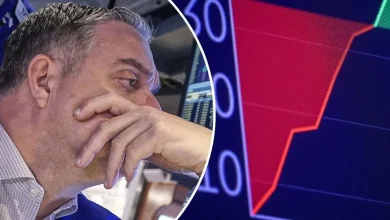Albanese’s won over Trump. Convincing the Australian people about what comes next will be tougher

It is now clear that, regardless of his proudly left-wing origins, Albanese has no intention of jeopardising the alliance he recognises as integral to Australia’s security merely to burnish his status as a hero to his political constituency.
Loading
That hardly means that his delegation entered Trump’s White House oblivious to the confronting character of their ally and its assault on the progressive and liberal democratic version of America that many Australians thought they knew. Instead, the four questions that informed Australian policy when they walked in to face the glare of gilt and cameras would have remained just as much on their minds when they emerged, however relieved, to the light of day. How large and irreversible is the damage this administration is inflicting on the interests of the United States and other democracies? How profoundly and permanently does Australia need the security partnership of even a self-weakened United States? Can this administration muster enough strength and leadership to constrain China’s bid for regional and global dominance? And – notwithstanding Trump’s confidence that he has Xi Jinping’s measure – what exactly is this administration’s China policy, which will inform its wider Indo-Pacific strategy and security expectations of Australia?
So our delegates in Washington were right to be relieved but would be wrong to be relaxed.
Their success was not out of the blue, and the hardest work lies ahead. Trump himself acknowledged the months of effort behind the strategic minerals deal (including presumably the energies of Rudd as well as the patience and professionalism of Australian officials). And while US statecraft in our region has suffered from off-putting rhetoric, aid cuts and unfilled senior appointments, alliance activity has not just continued but intensified, especially in military exercises.
In recent months, the last iteration of the biennial Talisman Sabre exercise in Australia was the largest such activity yet conducted, involving 19 nations, 40,000 personnel and a series of weapon-testing firsts under warlike conditions, with the United States key to planning, firepower, intelligence and logistics. If the US strategic commitment to the Indo-Pacific is in poor health, this was a strange way of showing it.
For now, AUKUS is preserved, with Trump as its scrutinising champion. That means that here in Australia the pressure for delivery will only intensify. Across government, politics and the community, many still don’t realise the scale of effort required to make this intergenerational security ambition a success: acquiring and building the world’s most advanced submarines, faultlessly stewarding nuclear reactor technology, training a highly skilled workforce, reinforcing Australia’s place on the map of American-led military deterrence and – in the worst case – warfighting.
Loading
Getting through the present challenging times may require the Australian government to set itself a new and harder test, raising alliance expectations of what the country can contribute to deterring China, or to a war effort if deterrence fails. This in turn means that Canberra’s hardest security dialogue will not involve being put on the spot at the White House but could instead prove to be a national conversation with the Australian people about preparedness, resilience and risk.
An Australia that devotes greater resources and attention to its security across the board – in social cohesion, supply chains, cyber and civil defence, and not just military capability – will make both a more credible partner and a more independent security actor. Doing so would also help our nation hedge against the risks of doubling down, however pragmatically, on a fundamentally self-interested and less than predictable ally.
Professor Rory Medcalf is head of the National Security College at the Australian National University.
Get a weekly wrap of views that will challenge, champion and inform your own. Sign up for our Opinion newsletter.





